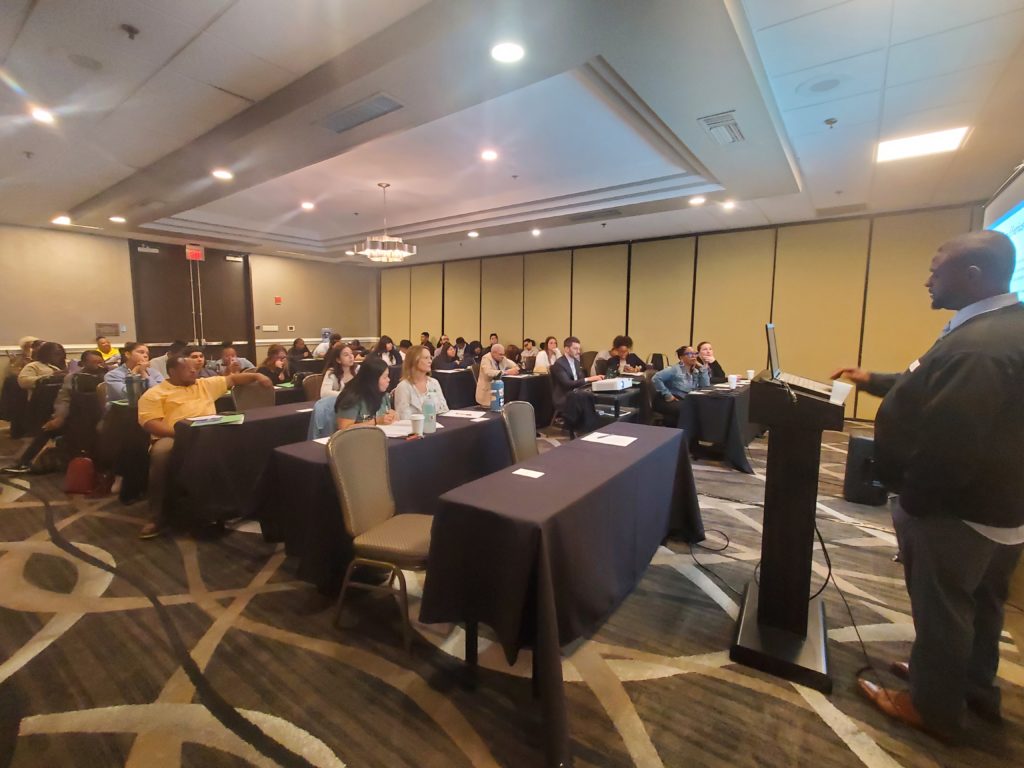
To coincide with May as Mental Health Awareness Month, the Community Planning and Advocacy Council (CPAC) held its first summit on the current state of mental health in kids on May 30 at the Double Tree by Hilton in Cherry Hill.
The idea came about at a meeting of the Children Interagency Coordinating Council (CIACC) in January.
“This was one of our goals,” said Andrew Selby, senior project specialist at CIACC. “Because one of our main things is mental health, we wanted to do something around Mental Health Awareness Month. So we said, ‘Hey, let’s do a summit.’ It could be something we do every year.”
The event’s panel featured Michelle Codington, co-founder and executive director of The Thrive Network, a group of organizations that focuses on the well being of children, adults, and adolescents; Andres Hernandez, youth volunteer at Camden County Family Support Organization; Tyler Hines, founder of Just a Kid from Sicklerville, a mentoring and youth program; and Kirk Brockenbrough, a supervisor for the Center for Family Services and New Jersey Statewide Student Support Services (NJS4).
Selby led the panel as it addressed the negative impact of social media on mental health, the importance of mentorship and social supports outside of the family.
“Right now, one in five students in Camden County have either been diagnosed or are suffering with some form of mental-health challenge,” Brockenbrough noted. “The crazy part of that is that more than 50% of those, of people who have identified this, are not in active treatment right now, so that is alarming to us, in each and every way.
“I think one of the tools we need to utilize more is preventative measures.”
For Hines, something that helped him in his youth was a teacher who chose to mentor him, though Hines didn’t know it at the time.
“He wasn’t my teacher,” Hines recalled. “He wasn’t who looked like me. He was somebody from a different race. He changed my life. Once you see that support from somebody outside of your own family, you see that somebody’s putting that time into you, that effort, it changes your life.”
Following that experience, Hines started the mentoring program Just a Kid from Sicklerville as a way to give back to his community.
Codington advocated at the summit for credentialed clinicians with diverse backgrounds.
“We need trained and credentialed clinicians who are trained in play, who are trained in drama, music, art, because kids and teens don’t always process their experience with words,” she explained. “The parts of their brain that are in charge of vocabulary, or rational thinking, are still under construction.”
When asked about effective strategies to support struggling kids, Codington mentioned the importance of creating safe spaces where they can feel at ease.
“When somebody’s afraid that something bad is about to happen,” she emphasized, “they’re not relaxed,” she said. “They’re in fight, flight or freeze and we can’t learn anything new when our nervous system is caught in fight flight or freeze. So creating safety – you do that through laughter, through play, through connection.
“Safe grownups can demonstrate what calm regulation looks like,” Codington added, “so that young people can then learn themselves and stretch their capacity to become calm and regulated, even in the face of really big challenges or big feelings.”

Attendees hear participate in a community circle on mental health during a summit last month.
Brockenbrough pointed out that there are a number of supports out there, and the one that’s right may depend on the individual. For instance, some kids may do better in group therapy or play therapy than individual therapy, he said. A person’s history and background can also be taken into consideration when seeking help.
Following the panel, attendees took part in a variety of workshops, including the experience of a community peace circle by the Restorative Justice Hub; discussions on habits that promote health, wellness and accountability; and navigating mental health in the justice system.









